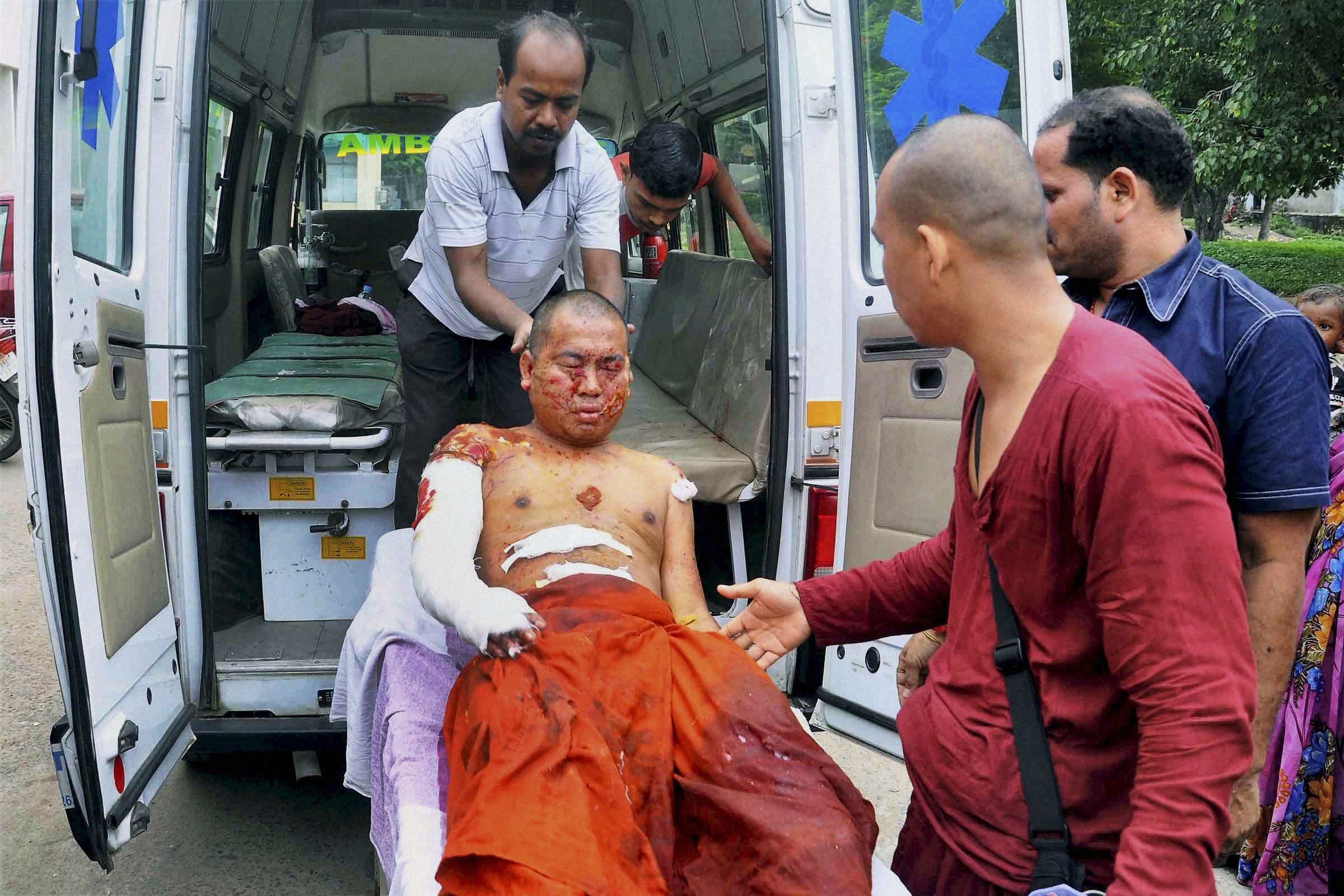[cycloneslider id=”demise-of-the-old-left”]
On 2 January, as television channels across Kerala beamed the news of a split in the Communist Marxists Party (CMP), its founder-leader Melathu Veettil Raghavan kept wondering if the party making news was the one he had founded.
Dementia has erased much of his memory. As political analysts declared the demise of the party, the 81-year-old communist leader sat staring at the television screen asking his family whether the news flash “was about CMP”.
A firebrand leader who once rocked the Kerala State Assembly with his sarcastic speeches, Raghavan no longer understands why family members and loyalists are fighting to control the party. In a way, loss of memory came as a blessing.
Raghavan, better known as MVR, established the CMP in 1986, after he was expelled from the Communist Party of India (Marxist) over a difference of opinion. In an ‘alternative political document,’ he had argued that the CPM join hands with the Indian Union Muslim League (IUML) to keep the Congress out of power.
“MVR wanted the CPM to rule Kerala for ever and the biggest challenge was to get support from the Muslim community. So he used a short-cut to reach out to the Muslims: the Indian Union Muslim League,” recalls U Vikraman, a state leader of the CMP.
After his expulsion, MVR followed only a single agenda: to defeat the CPM. He considered EMS Namboodiripad, CPM ideologue and the first chief minister of Kerala, who was instrumental in MVR’s expulsion, to be a political opportunist. While he had many admirers in the party, most deserted him. Few leaders like KR Aravindakshan and CP John remained with him when he founded the CMP.
The latest split was prompted after MVR’s family members engaged in an open tug of war over controlling his wealth and an anti-venom and ayurvedic centre established by him.
With his sons, Gireesh Kumar and Rajesh Kumar, at loggerheads, chinks started appearing within the party. Party politburo member Aravindakshan elevated himself to the position of party general secretary, a position held by MVR since the party was founded.
Senior leader and party planning board member CP John opposed the move. Following the disagreement the two leaders expelled each other from the party.
While John has termed Aravindakshan a traitor who wants to see the party’s ruin before MVR’s death, Aravindakshan has termed John a political opportunist, who engineered the coup in the party by appointing MVR’s eldest son, Gireesh, as the president of Papinisseri Visha Chikilsa Society, the anti-venom centre founded by MVR.
MVR’s younger son, Rajesh, with Aravindakshan’s support, opposed the move. According to him, Gireesh masterminded the move by affixing the thumb impression of his father without the latter’s knowledge.
With both the family and the party divided over sucession, the CMP is beginning to crumble.
As no elected leader represents the party in the Kerala Assembly, its biggest worry is how to continue being relevant in the state’s politics. While the party supports the ruling Congress-led United Democratic Front (UDF) government in the state, John alleges that Aravindakshan is keen on joining the Left Front.
“I will not make any compromise with CP John. We are with the UDF and have no plan to join the Left Front. Chief Minister Oommen Chandy had told me to meet him and discuss the issues. Let’s wait and see,” Aravindakshan told TEHELKA.
John, who is also a former national vice-president of the Students Federation of India, is trying his best to garner support for himself within the UDF. He lost narrowly in 2011 Assembly election and feels that his political future will be secure only with the Congress.
“The CMP has little relevance in the present political scenario in Kerala. It is going to die sooner or later. But the tragedy of the CMP is that the party had died before its founder MVR. Certainly, the developments are going to make the CPM very happy,” says A Jayashanker, a political commentator.
The party that is now struggling to stay relevant, was a major shock for the political establishment when MVR founded it. A gifted orator and organiser, MVR enjoyed immense cadre support. Along with senior CPM leaders like EK Nayanar, former chief minister of the state, and PV Kunjikannan, the then Left Front coordinator, MVR experimented with alternative politics to stablise power in Kerala. Supporting the IUML, considered a communal outfit by the CPM, was a novel move devised by MVR to generate support base.
Born on 5 May 1993 to a poor family in northern Kerala’s Kannur district, MVR was spotted by communist doyen AK Gopalan, after whom the CPM headquarters in New Delhi is now named. He won his first stint in the Kerala Assembly with a CPM ticket in 1970, and subsequently, in 1977, 1980 and 1982. He gained increasing popularity during these years for his caustic remarks in the Assembly.
MVR was often the last word in the state’s northern Malabar region, where violent political skirmishes were a routine affair. While consolidating his political base in the region, he fought the BJP and the RSS in the most ruthless manner. Both friends and foes feared him for his ability to unleash violence at the drop of a hat.
He fought his first election under CMP’s banner in 1987 and went on to support the Congress-led UDF government. He was elected again in 1991 and 2001. He was appointed the Minister for Co-operation and ports.
His revival under the K Karunakaran regime, altered the political history of the CPM in the state and helped Nayanar become the chief minister of Kerala in 1987 and 1996.
The current CPM leadership, including politburo member and state secretary Pinarayi Vijayan, were elevated in party ranks after MVR’s expulsion.
After his defeat in the 2011 Assembly election, MVR’s health and clout started withering. He was sidelined within the party, and shifted base from Kannur to Thiruvananthapuram.
MVR never concealed his contempt for the Left Front and CPM ideologue EMS Namboodiripad. He criticised the latter in the harshest terms at every opportunity that presented itself. In his autobiography Oru Janmam (A lifetime), he paints Namboodiripad as a villain.
With rumours of party leaders meeting CPM and Congress leaders in a bid to save their skins, CMP is now a thing of the past. The dreams of fighting the CPM are now lost in oblivion. MVR can no longer make a come back.




